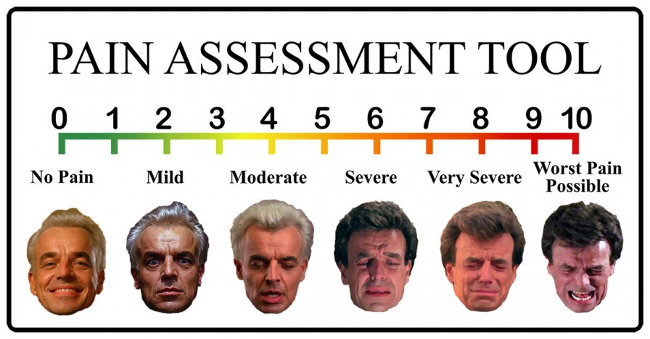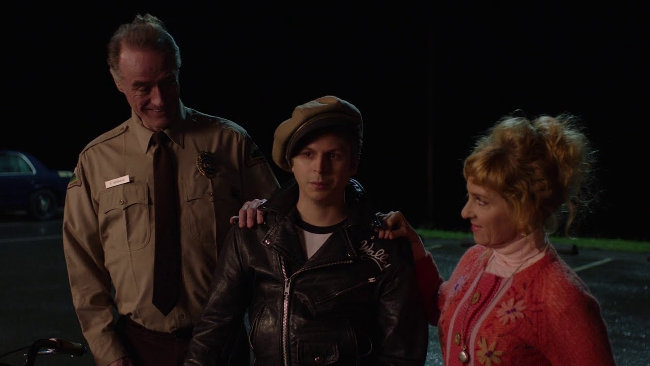
On the eve of the Twin Peaks reboot launch, Will Neibergall published a thoughtful essay at Tiny Mix Tapes about this particular TV-series-as-meme and how it's viewed by millennials (or at least the one writing the article): a failed show that resonates as a fictitious America even less palpable than it was to its original target audience. "One of the many reasons you love Twin Peaks," he writes, "is that its characters feel like people you know in real life, even though everything else in the show feels very unfamiliar. Twin Peaks makes you nostalgic for a time you don’t remember and a place that doesn’t exist."
From this reaction, Neibergall extrapolates how an even-further-removed generation will appreciate the show:
Maybe those viewer-subjects live in a huddled condition, in what philosopher Peter Sloterdijk calls “ecological stress communes,” pressed inland and away from cultural centers now remembered and revered like ancestors, jostled about by resource scarcity, plagued by ridiculous fantasies of aliens and sea people punctuated by actual disaster, war, and collapse. Or maybe these troubles loom on their horizon. In the face of these real nightmares, do they dream of ending up in a place like Twin Peaks, of grappling with its fake demons? Maybe future Twin Peaks viewers see in it a refreshingly provincial vision of encompassing crisis. A town where a yellow light still means “slow down” resonates abstractly with them. They are absorbed by the dark forces stirred out of the brown-gray American forest, by the murder of the cocaine-addicted homecoming queen and secret prostitute. Maybe, naive to the reality of their own circumstances, they feel like Dale Cooper chasing after those elusive and idealized spirits.
Neibergall wonders whether the 2017 version will be any good:
[W]ill Twin Peaks really walk and breathe more freely, as if awoken to a new life, and find something like that original sense of purpose? Or will it lose its way again in the smoke and mirrors of a shoddily constructed model of the public?
Twin Peaks 2017 pressed on with the occult narratives that seemed scatterbrained in 1991, creating actual mythology out of a hairball of modern paranoiac concepts. The atom bomb and its proximity to Roswell. Causality loops controlled by mysterious "lodges" and entities that seem to work at cross-purposes. A red-curtained room with chevron-patterned floor that serves as atrium to those nether-spaces. Human suffering in the form of a creamed corn-like substance that vomits inexplicably out of character's mouths. A parade of unexplained urban "types" having late night conversations in Twin Peaks' impossibly large bar. Audrey Horne's afterlife in a hellish marital scenario. Musical acts that all seemed to have moved to LA to be "Lynchian." A cornucopia of aging and/or mothballed actors, still strutting their stuff.
These elements mesh somehow into a poignant whole that binds the loose ends of the original series and redeems it retroactively. Whether its characters still feel "like people you know in real life" takes back stage in the Lynch/Frost uber-saga, or counter-saga, of supernatural interventions in mixed-up, SNAFU'd America.
Whether any of it will be of value to future eco-stress communards can't be guessed. Judging from current fan involvement on the Twin Peaks Wiki and other sites, the show speaks to the here-and-now. Mythologies begin with cults, and it's not unimaginable that this one might blossom, so that when our descendants ponder when it all went wrong they will know -- when the Woodsmen appeared above the gas station, of course. "This is the water and this is the well. Drink full and descend. The horse is the white of the eyes, and dark within." In Bob's name we pray.
It's "just a TV show," but also a kind of poetry of shared repressed nightmares. Including, but not limited to, Wally Brando.

